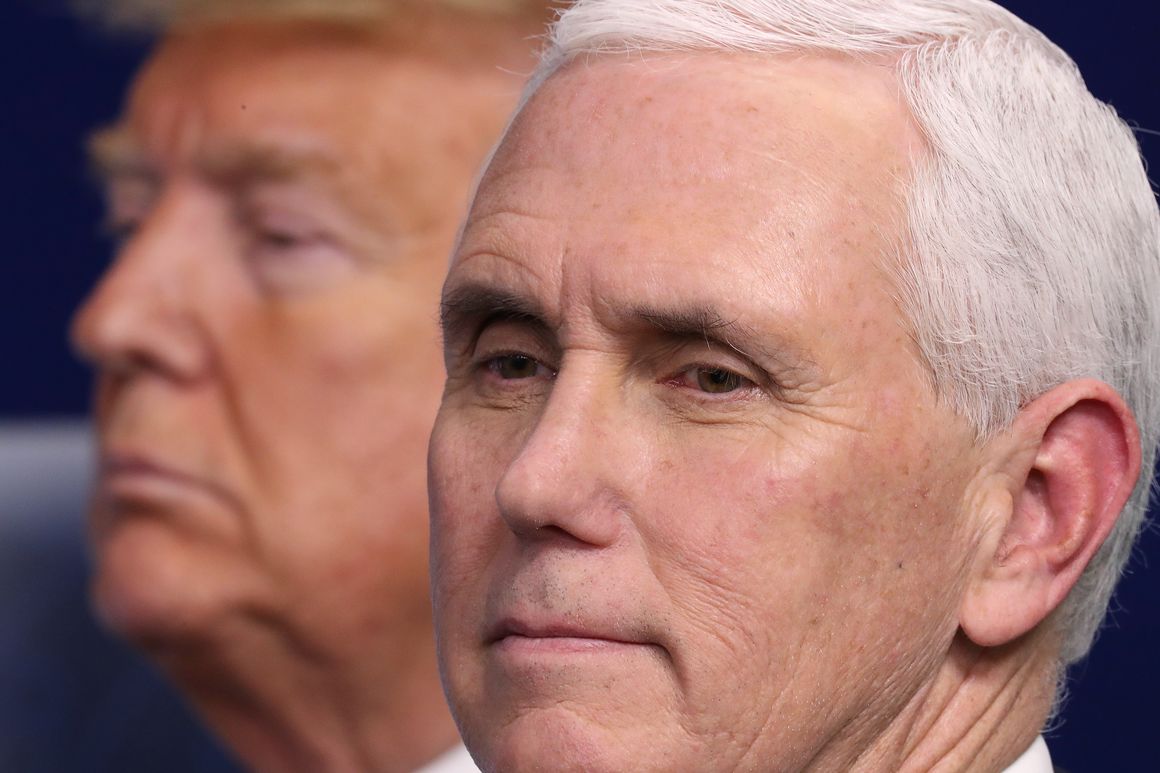
“The president is all but the king? This is the best example I’ve seen of the vice president getting away from his philosophy,” John Gregg, who mounted Democratic gubernatorial bids against Pence in 2012 and 2016, told me Tuesday. “It just makes me wonder, what kind of hold does the president have on some of these people.” Gregg, whom Pence hand-selected to take over one of his two radio shows after his election to Congress, told me he is reluctant to criticize his friend and former political opponent, but this instance seemed beyond the pale. “My differences with Mike Pence are political—not personal,” he told me.
As a congressman, Pence bristled at sweeping George W. Bush-era federal initiatives such as No Child Left Behind and Medicare Part D.
As governor, Pence changed Indiana’s Office of Federal Grants and Procurements to the Office of State Based Initiatives, arguing that “Indiana must take the lead in pushing back against federal mandates.” He opposed federal programs such as the controversial Obama-era K-12 educational standards known as the Common Core and Medicaid expansion. On the former, he ensured that Indiana was the first state to withdraw; on the latter, he requested a tarmac meeting with Obama, pressing him on the issue. He opted for a Medicaid waiver and extended the Healthy Indiana Plan 2.0, Indiana’s state-run alternative featuring health savings accounts (a plan designed by Seema Verma, now chief of the Centers for Medicare & Medicaid Services).
“What happened to the guy that fought for the Medicaid waiver?” Tom LoBianco, the vice president’s biographer, asked me. “He fought for two years on that.”
“The trouble and the challenge for Pence has always been trying to match his theology and strict message discipline to wherever Trump is moving at any given moment,” Lobianco said. “I don’t think he’s tossing federalism out the door. I think the president is changing his tune and he’s trying to keep with that tune. It creates an incredible amount of discord if you look back at his own record.”
Though Pence’s remarks on Monday acknowledged absolute presidential power specifically in national emergencies, others have swiftly disagreed with that. Republican Rep. Liz Cheney tweeted Monday: “The federal government does not have absolute power,” before quoting the 10th Amendment. (The post had generated nearly 9,000 retweets as of Tuesday.) Legal scholars have pointed to Supreme Court decisions overruling sweeping presidential actions during national emergencies, saying presidential power is never “total” or “plenary,” not even in war.
For Pence, this contortion is another in a long line of them, spanning everything from free trade to immigration reform. “The vice president jumped right on the Trump train,” Gregg told me. “He realizes that the president brought him to dance.”
“He’s supremely political,” Lobianco says. “It’s the central finding of the book. He’s not an ideologue. By definition, if politics factor in above ideology, you’re not an ideologue.”
On Monday, politics trumped Pence’s long-held ideology.
In 2014, as he gamed out a 2016 presidential bid, Pence spoke to the Federalist Society in Indianapolis, sprinkling “federalism” throughout his speech no fewer than 10 times. He recalled a conversation with Ed Meese, Reagan’s former attorney general. The two swapped stories about Reagan’s 1982 speech on federalism to Indiana’s General Assembly.
Federalism, he told the room, was “Reagan’s unfinished work.”
Now, it may be Pence’s unfinished work, too.
Source: politico.com
See more here: news365.stream






